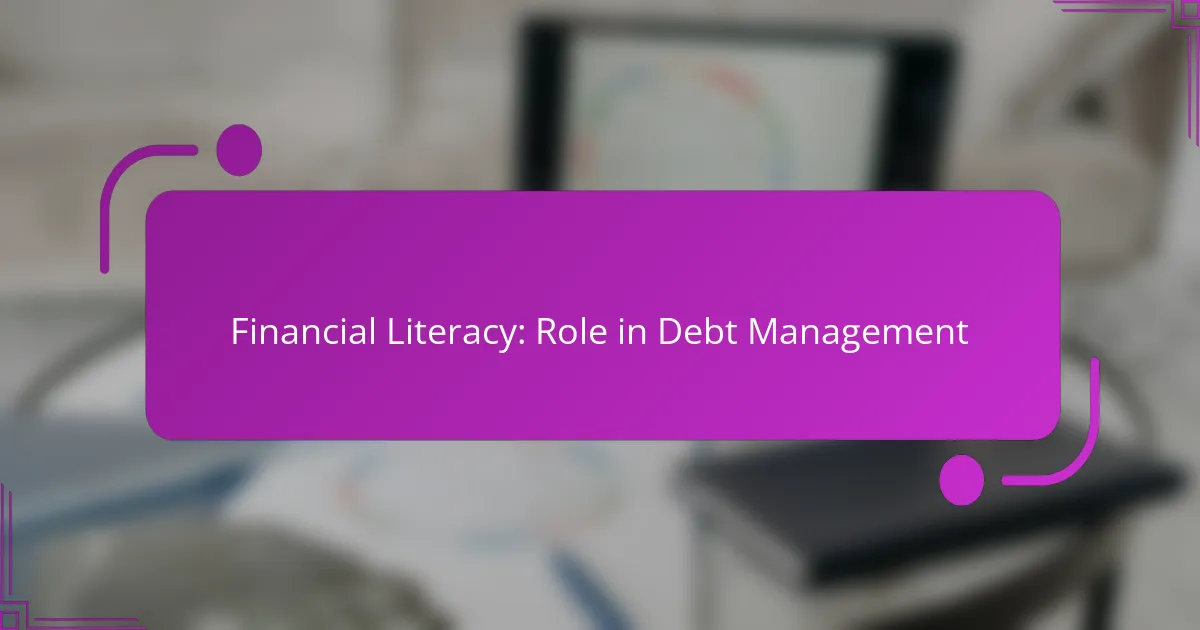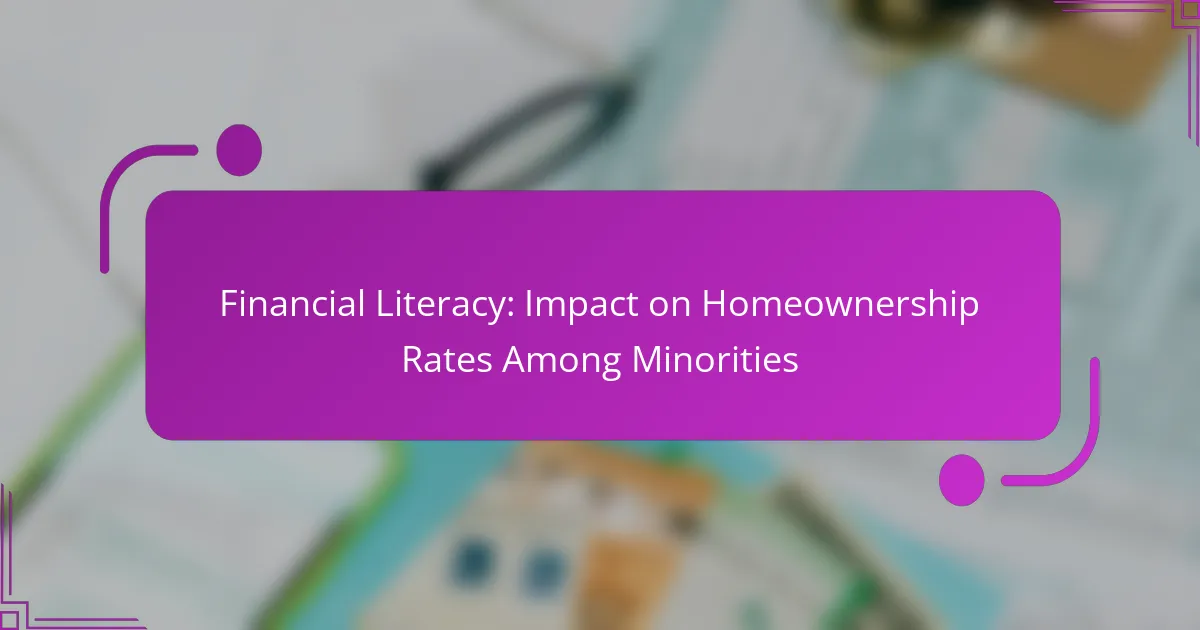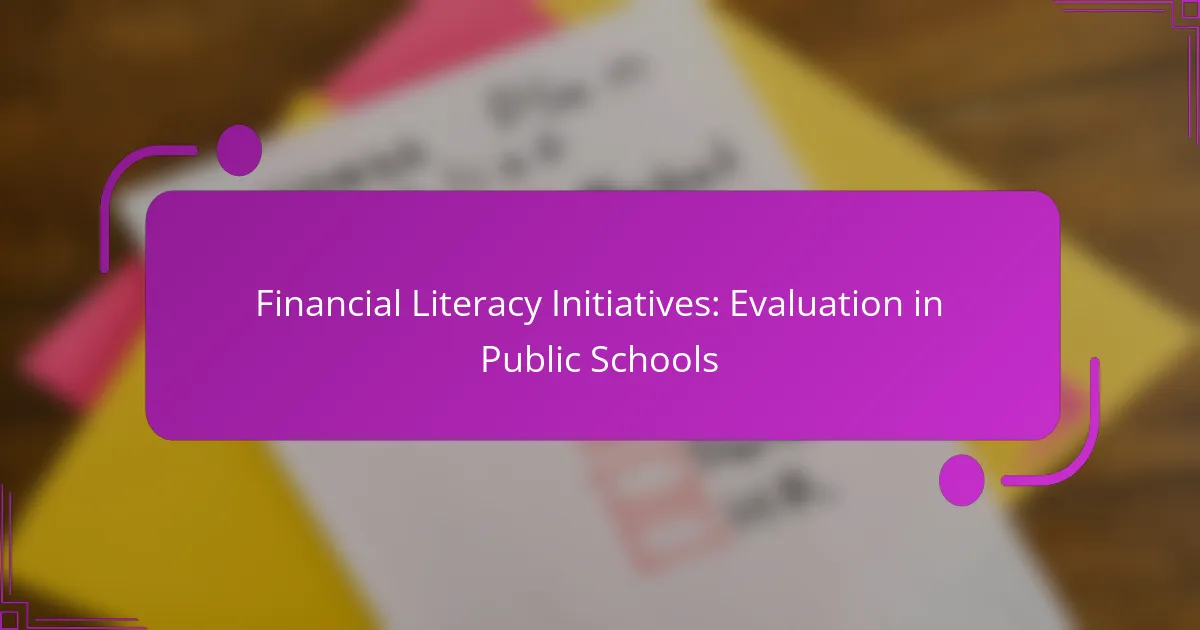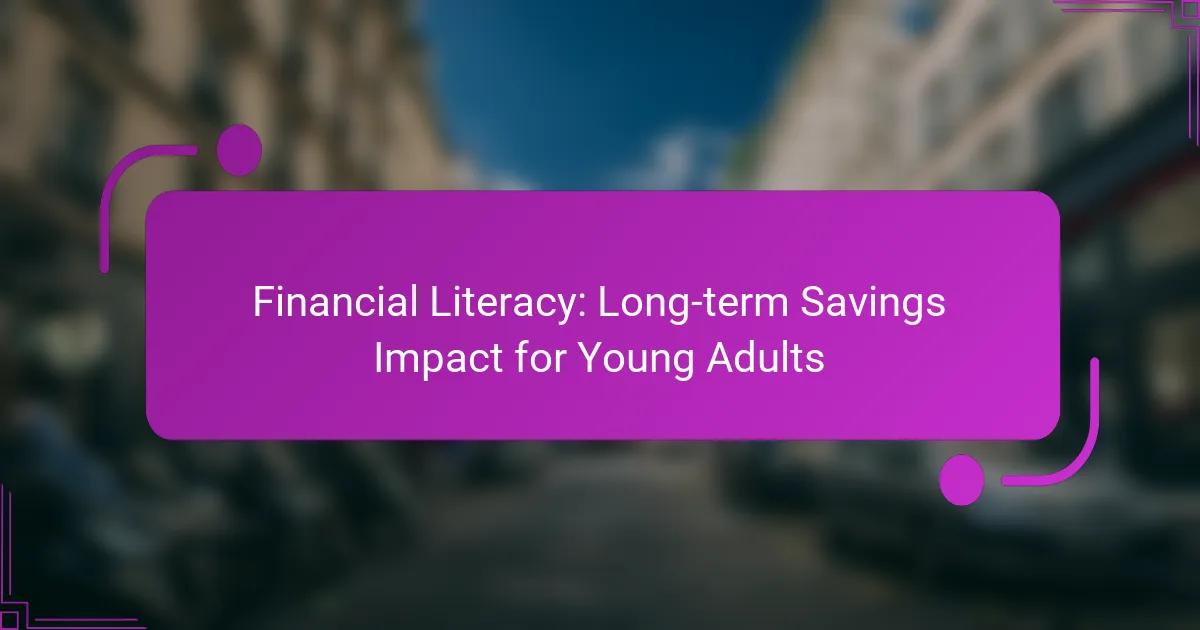Financial literacy plays a crucial role in effective debt management by providing individuals with the essential knowledge and skills to navigate their financial landscape. By understanding concepts such as budgeting and interest rates, individuals can make informed decisions that lead to reduced debt burdens and improved financial health.
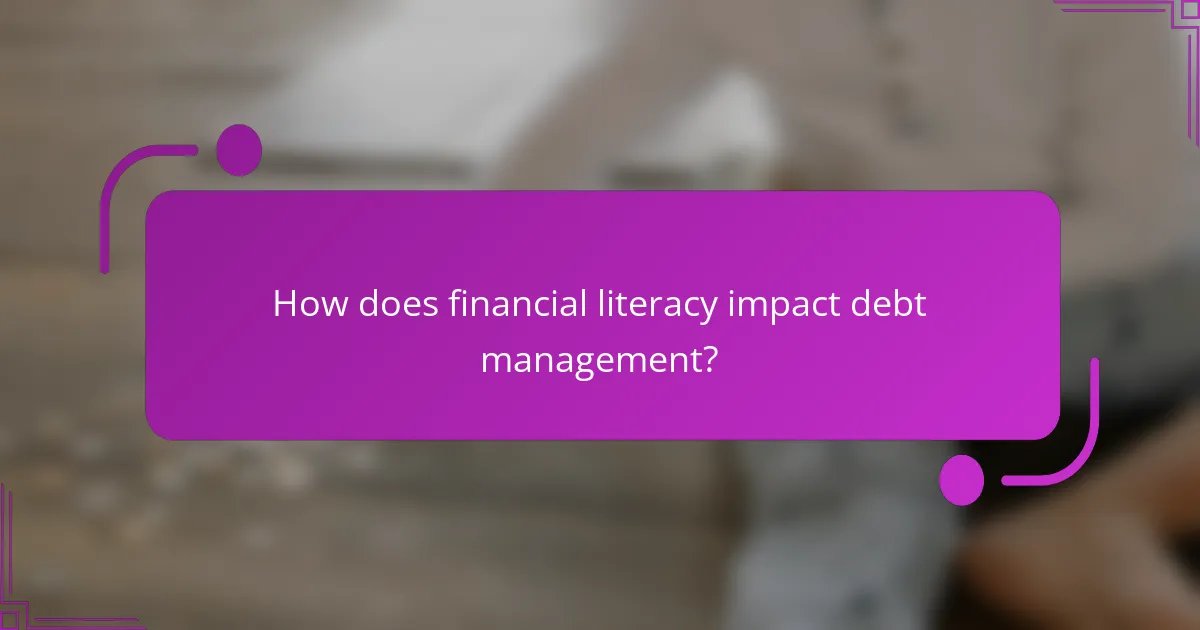
How does financial literacy impact debt management?
Financial literacy significantly enhances debt management by equipping individuals with the knowledge and skills needed to handle their finances effectively. Understanding key concepts such as budgeting, interest rates, and informed decision-making can lead to better financial choices and reduced debt burdens.
Improves budgeting skills
Financial literacy fosters strong budgeting skills, enabling individuals to track income and expenses accurately. By creating a realistic budget, people can allocate funds for debt repayment while ensuring they meet essential living expenses.
For effective budgeting, consider using the 50/30/20 rule: allocate 50% of income to needs, 30% to wants, and 20% to savings and debt repayment. This approach helps prioritize financial obligations and avoid overspending.
Enhances understanding of interest rates
Understanding interest rates is crucial for managing debt effectively. Financial literacy helps individuals grasp how interest affects loan repayments and the total cost of borrowing. This knowledge enables them to compare loan offers and choose options with lower rates.
For example, a loan with a 5% interest rate will cost significantly less over time than one with a 15% rate. Individuals should always read the fine print and consider the annual percentage rate (APR) when evaluating loans.
Facilitates informed decision-making
Financial literacy empowers individuals to make informed decisions regarding their debts. With a solid understanding of financial principles, they can assess their options, such as consolidating debts or negotiating payment plans, to find the best solutions.
To avoid common pitfalls, individuals should regularly review their financial situation, seek advice when needed, and stay updated on their rights as consumers. This proactive approach can lead to better debt management outcomes and financial stability.

What are effective debt management strategies?
Effective debt management strategies help individuals pay off their debts systematically while minimizing interest costs and stress. Key methods include the debt snowball and debt avalanche techniques, as well as consolidation loans, each with unique approaches and benefits.
Debt snowball method
The debt snowball method focuses on paying off the smallest debts first, regardless of interest rates. By eliminating smaller debts quickly, individuals gain motivation and momentum to tackle larger debts over time.
To implement this strategy, list all debts from smallest to largest. Make minimum payments on all debts except the smallest, to which you allocate any extra funds. Once the smallest debt is paid off, move to the next one on the list.
This method can be particularly effective for those who need psychological boosts from quick wins, but it may result in higher overall interest costs compared to other strategies.
Debt avalanche method
The debt avalanche method prioritizes debts with the highest interest rates, aiming to reduce overall interest payments. This strategy is mathematically optimal for minimizing total debt cost over time.
To use this method, list all debts by interest rate, from highest to lowest. Make minimum payments on all debts except the one with the highest interest, to which you direct any additional funds. Once that debt is cleared, move to the next highest interest debt.
This approach can save money in the long run, but it may take longer to see progress, which can be discouraging for some individuals.
Consolidation loans
Consolidation loans combine multiple debts into a single loan, often with a lower interest rate. This can simplify payments and potentially reduce monthly costs.
To pursue this option, research lenders offering consolidation loans and compare interest rates and terms. Ensure that the new loan has favorable conditions compared to existing debts. Be cautious of fees and the total repayment period, as extending the term can increase the total interest paid.
While consolidation can be beneficial, it is essential to avoid accumulating new debt after consolidating, as this can lead to a cycle of debt that is difficult to escape.
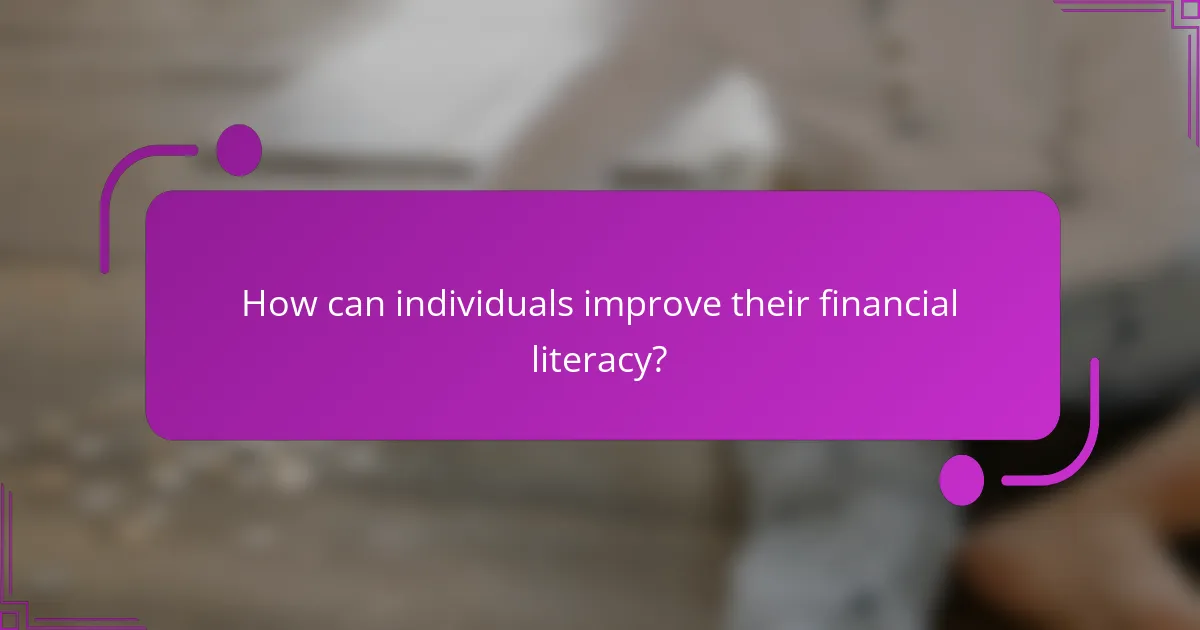
How can individuals improve their financial literacy?
Individuals can enhance their financial literacy by engaging in various educational resources that provide knowledge about managing money, understanding debt, and making informed financial decisions. This improvement can lead to better debt management and overall financial health.
Online courses from platforms like Coursera
Online courses on platforms such as Coursera offer flexible learning opportunities for individuals seeking to boost their financial literacy. These courses often cover topics like budgeting, investing, and debt management, allowing learners to study at their own pace.
Many courses are designed by reputable universities and financial experts, providing high-quality content. Some courses may even offer certificates upon completion, which can enhance a resume or LinkedIn profile.
Workshops offered by local community centers
Local community centers frequently host workshops aimed at improving financial literacy. These workshops can provide hands-on learning experiences and personalized advice from financial professionals.
Participants can engage in discussions, ask questions, and learn practical skills such as creating budgets or understanding credit scores. Often, these workshops are low-cost or free, making them accessible to a wide audience.
Books by financial experts like Dave Ramsey
Reading books by financial experts, such as Dave Ramsey, can significantly enhance financial literacy. Ramsey’s books focus on practical steps for managing debt, saving money, and building wealth, making them relatable and actionable.
Many of these books include real-life examples and strategies that readers can implement immediately. They often emphasize the importance of budgeting and living within one’s means, which are crucial for effective debt management.

What role do financial advisors play in debt management?
Financial advisors play a crucial role in debt management by providing expert guidance tailored to individual financial situations. They help clients understand their debts, create strategies for repayment, and improve overall financial health.
Provide personalized financial plans
Financial advisors develop personalized financial plans that address specific debt situations. These plans typically include an analysis of income, expenses, and existing debts to create a roadmap for achieving financial stability.
For instance, an advisor might suggest a debt snowball or avalanche method for repayment, helping clients prioritize which debts to pay off first based on interest rates or balances. This tailored approach ensures that clients can manage their debts effectively while working towards their financial goals.
Offer investment advice
While primarily focused on debt management, financial advisors also provide investment advice that can complement debt repayment strategies. They assess risk tolerance and recommend investment options that align with clients’ financial situations.
For example, an advisor may suggest low-risk investments that generate steady returns, allowing clients to allocate some funds towards debt repayment while still growing their wealth. This balanced approach can help clients achieve long-term financial security.
Assist with budgeting and debt repayment
Financial advisors assist clients in creating budgets that account for both living expenses and debt repayments. A well-structured budget helps clients track their spending and identify areas where they can cut costs to allocate more towards debt reduction.
Additionally, advisors can guide clients on setting up automatic payments for debts, which can prevent late fees and improve credit scores. They may also recommend debt consolidation options if it makes sense for the client’s financial situation, simplifying payments and potentially lowering interest rates.
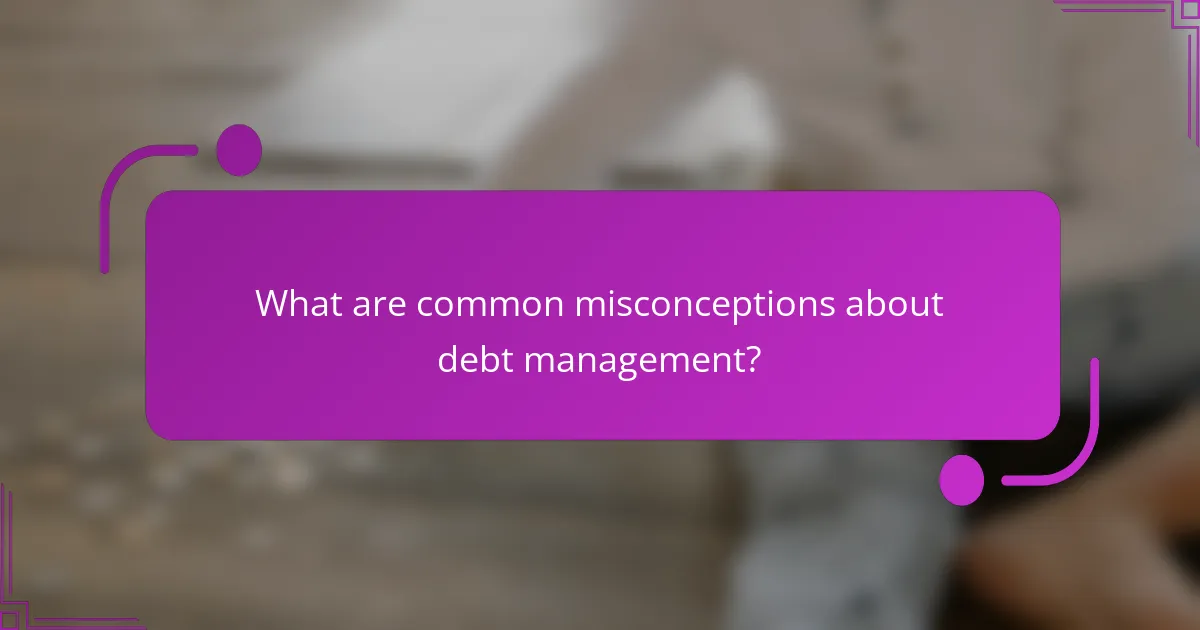
What are common misconceptions about debt management?
Many people hold misconceptions about debt management that can lead to poor financial decisions. Understanding these myths is crucial for effective debt handling and achieving financial stability.
All debt is bad
A common belief is that all debt is harmful, but this isn’t entirely true. Certain types of debt, such as mortgages or student loans, can be beneficial if managed wisely, as they may lead to long-term investments or education that increases earning potential.
It’s essential to differentiate between good debt and bad debt. Good debt typically has lower interest rates and contributes to asset building, while bad debt often comes with high-interest rates and does not provide any future value.
Paying minimums is sufficient
Many individuals think that making only minimum payments on their debts is enough, but this can lead to prolonged debt and increased interest costs. Paying just the minimum often results in a significant portion of your payment going toward interest rather than the principal.
To effectively manage debt, aim to pay more than the minimum whenever possible. This approach can reduce the overall interest paid and shorten the repayment period, helping you achieve financial freedom faster.
Debt relief services are always beneficial
While debt relief services can offer assistance, they are not always the best solution for everyone. Some services may charge high fees or negatively impact your credit score, making your financial situation worse in the long run.
Before engaging with a debt relief service, research thoroughly and consider alternatives like negotiating directly with creditors or seeking financial counseling. Weigh the pros and cons to ensure that the chosen path aligns with your financial goals.
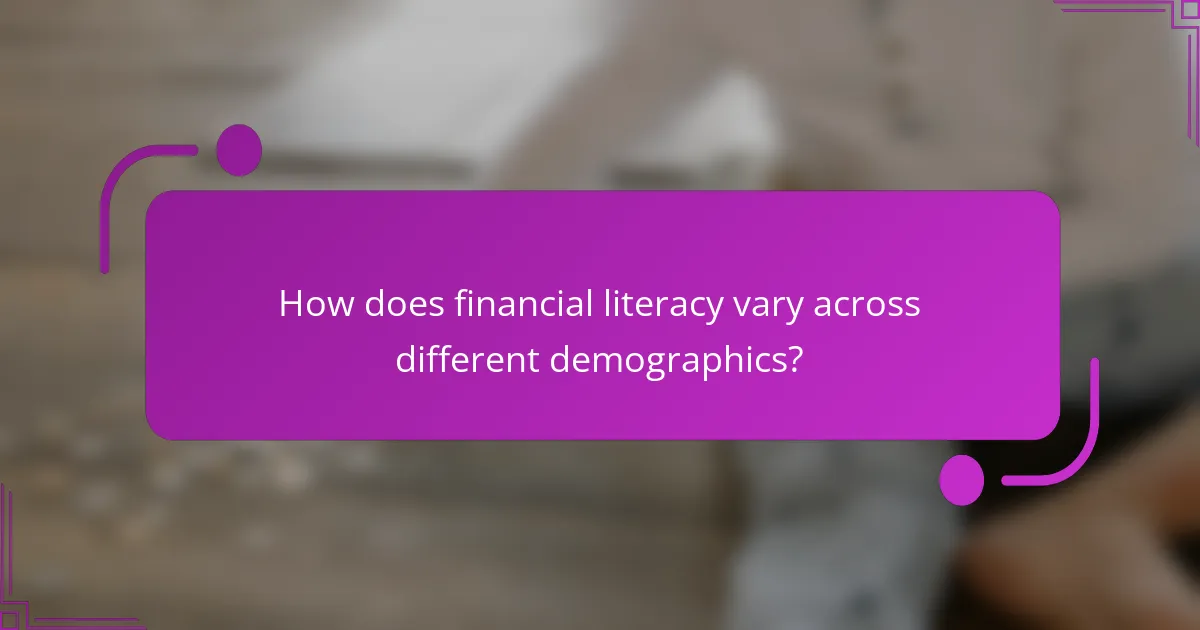
How does financial literacy vary across different demographics?
Financial literacy varies significantly among different demographics, influenced by factors such as age, education, income, and cultural background. Understanding these differences is crucial for tailoring effective debt management strategies to meet diverse needs.
Differences in education levels
Education level plays a critical role in shaping financial literacy. Individuals with higher education tend to have better access to financial information and resources, leading to improved understanding of debt management and investment strategies.
For example, college graduates may be more familiar with concepts like interest rates and credit scores compared to those with only a high school diploma. This disparity can affect their ability to make informed financial decisions, such as choosing the right loan or managing credit effectively.
To enhance financial literacy across all education levels, targeted educational programs should be implemented. Workshops or online courses focusing on basic financial concepts can help bridge the knowledge gap, empowering individuals to manage their debts more effectively.
